Michigan moms get cash each month to ease financial troubles. Does it work?

What happens when families have extra cash on hand each month — no strings attached?
Hundreds of moms in two different cities are finding out.
Flint, Michigan and Jackson, Mississippi, may be separated by more than 900 miles, but their similarities have driven a new approach to fighting child poverty.
Both have high rates of poverty. In Flint, 41% of people live below poverty, and 26% in Jackson. Tens of thousands of residents in the majority Black cities have also dealt with dire water crises within the last decade alone.
Both states have initiatives — one new and the other longstanding — to ease the economic hurdles families face, as prices for the basics remain high. In Michigan, the Rx Kids program launched this year to provide $7,500 in total to Flint moms, during and after pregnancy. In Mississippi, the Magnolia Mother’s Trust has been around since 2018. The program, meant for low-income Black mothers living in subsidized housing, offers Jackson moms $12,000 all together.
The programs — often referred to as guaranteed income or cash transfer — are among dozens across the country experimenting with providing direct cash payments to people with the greatest need, like expectant moms and low-income mothers.
There’s evidence that extra cash in hand can ease financial hardships for families, such as the Child Tax Credit — a tax break for eligible families with kids — and how its pandemic-era expansion had cut child poverty in about half.
Related: Michigan’s $55M experiment with guaranteed income begins with Flint moms
As research continues, Michigan is a hotbed for the latest experiment. Michigan lawmakers in June approved a tranche of money for Rx Kids to expand beyond Flint. If poverty is defined as the lack of income, then cash assistance is the most straightforward way to alleviate poverty and can be an “instant solution” to that problem, said Mary Bogle, a principal research associate with the Washington, D.C.-based Urban Institute. It’s a means toward financial stability, so families don’t have to worry about rent and instead get their kids into school, she said.
“Guaranteed income is a platform for success,” Bogle said.
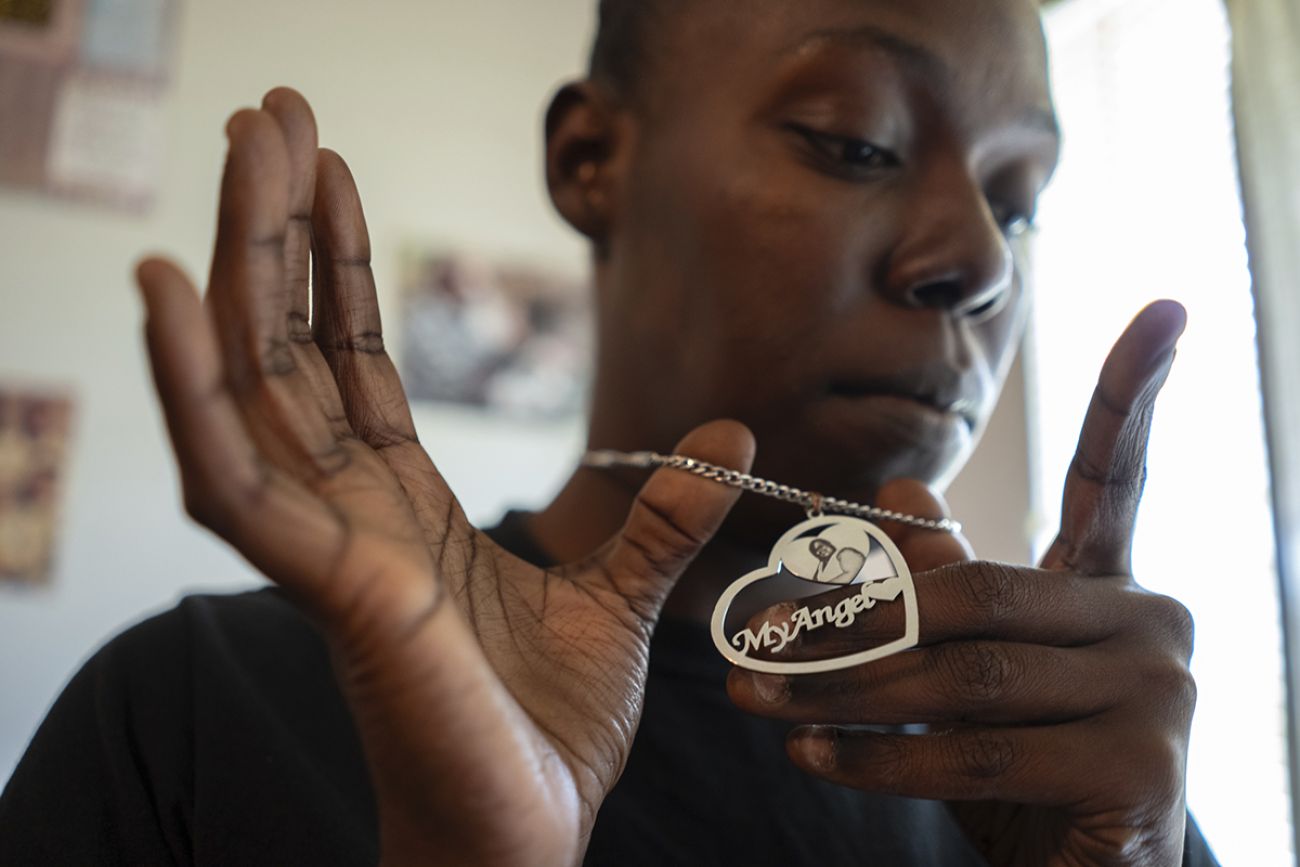
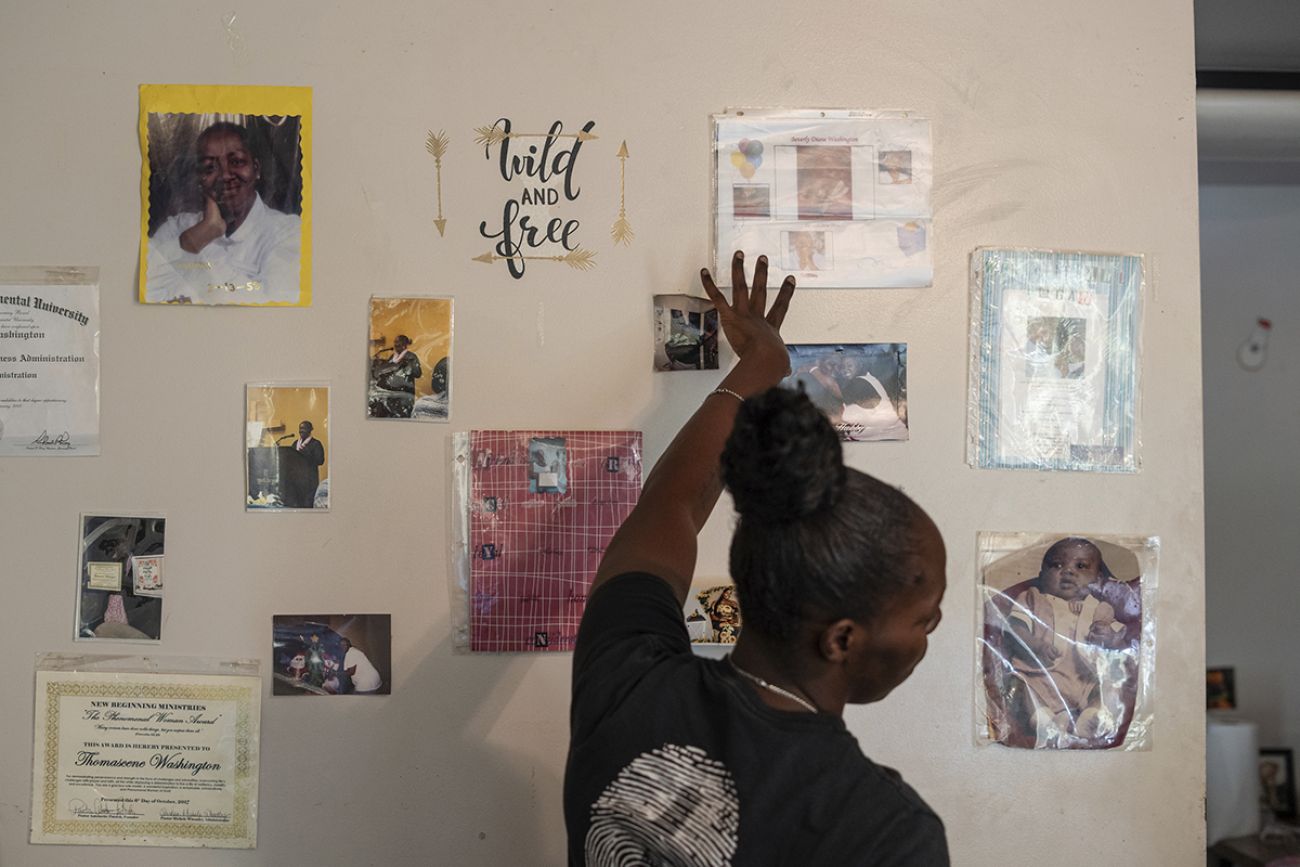
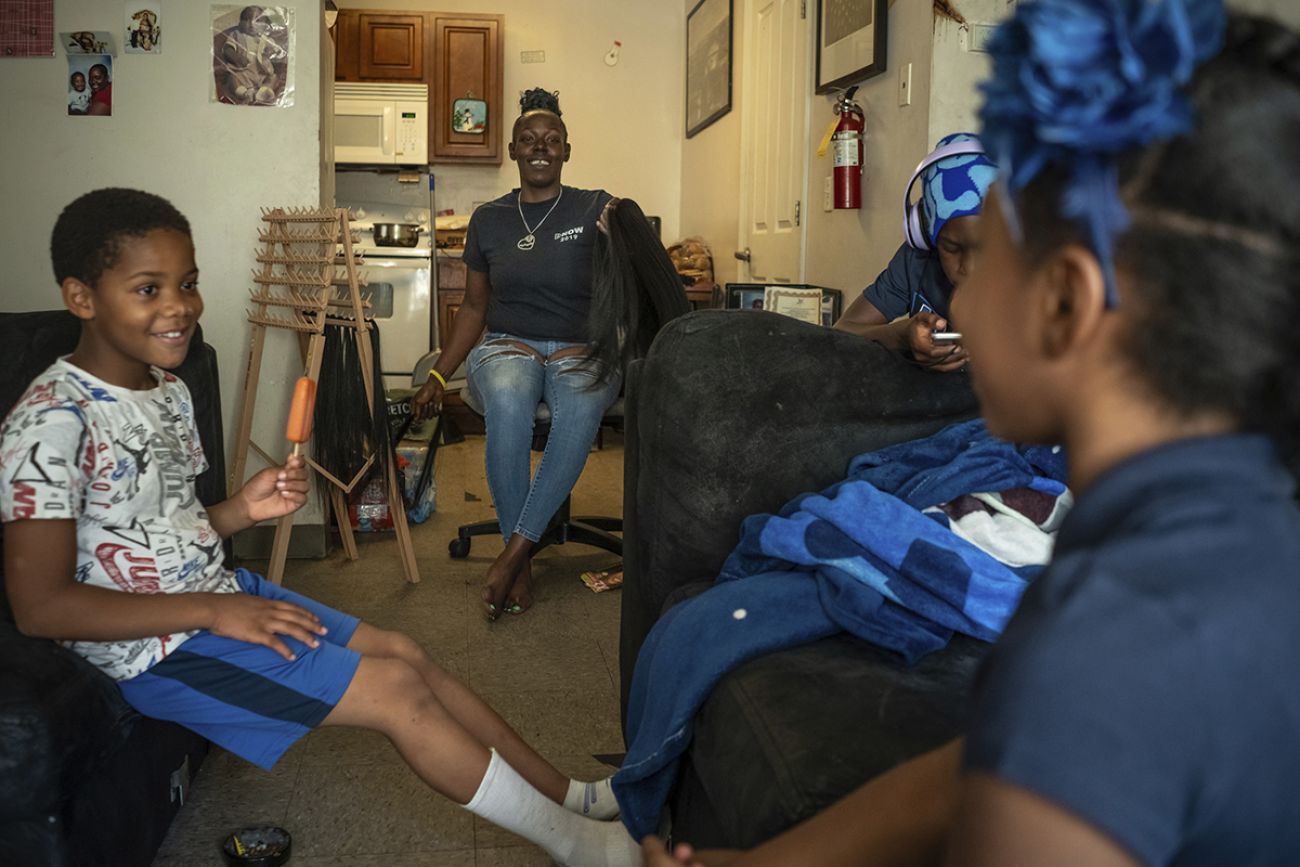
‘It gave me a peace of mind’
When Shaquille Washington was homeless for three months, she slept in the park with her young son, sometimes on a bench and other times in a gym.
Her mom — her “big boss” — died in 2017. Washington found herself homeless as she reeled from grief and let her apartment go. Her son remembers little of that time aside from memories of bus rides, she said.
Washington, a mom of two, vowed that her kids will never know homelessness.
“They’ll only experience homelessness by choice because the foundation that I’m trying to lay out for them is going to work,” Washington, 31, said. “I’m not going to say it should work. It’s going to work.”
The walls of Washington’s home at the Commonwealth Village apartments in Jackson are filled with pictures and mementos of her mother and grandmother. A heart-shaped necklace, with a picture of her mom, sits around Washington’s neck. “My angel,” it says.
Both women were central figures in her life. Her grandmother took her in after she became homeless, moving from Texas to Mississippi to be with Washington. When her grandma died just a few years after her mom, Washington fell into a depression. Washington found out she was pregnant with her daughter that same year.
“I was literally going through my whole pregnancy by myself,” she said.
After setbacks and back-to-back losses, in 2021 Washington found out she had been selected for Magnolia Mother’s Trust, a program specifically for low-income families led by Black moms living in subsidized housing, like Commonwealth Village.
She almost did a cartwheel from the relief.
Washington received $1,000 a month throughout 2022. The additional cash gave her financial stability, helping her stock up on the basics — diapers, clothes, shoes and a car — and save. She threw a baby shower and got maternity pictures.
“I had diapers stacked up to the top of my closet, and my pantry, full of diapers, wipes. I didn’t have to get nothing literally for a whole year,” she said.
She felt like a supermom because she was able to buy her son what he wanted. And when he asked for something at a store, and she said ‘no,’ it wasn’t because she couldn’t afford it.
“It gave me a peace of mind, mentally, that I was gonna be okay,” she said.
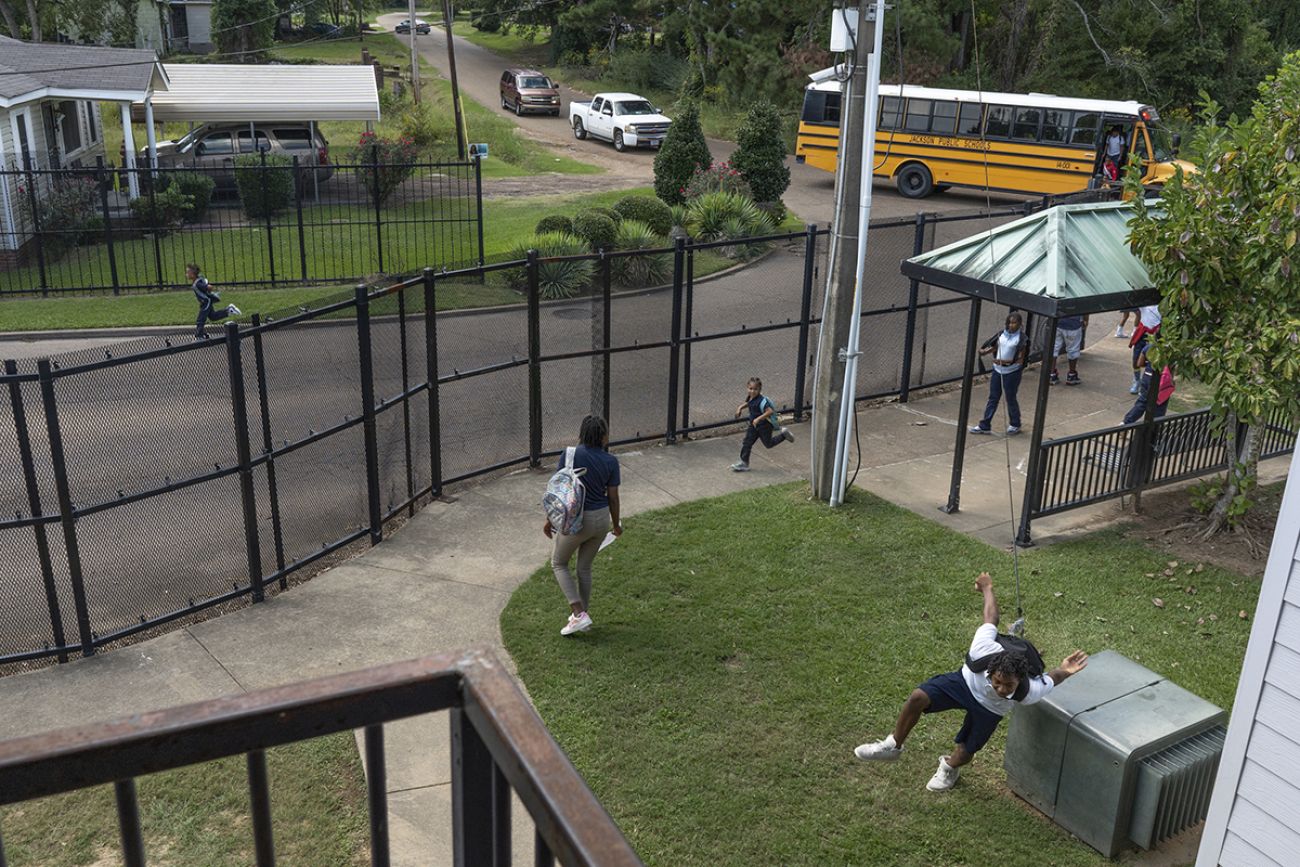
Do guaranteed income programs work?
Magnolia Mother’s Trust came about after the organization under which it operates, Springboard to Opportunities, heard from residents about the day-to-day realities of their lives, like struggling with transportation and paying for extracurricular activities for children.
These were barriers that could be resolved with money, said Aisha Nyandoro, CEO of Springboard to Opportunities, who launched the program.
Magnolia Mother’s Trust set out to provide $1,000 a month for a year with no strings attached for Black mothers living in federally subsidized affordable housing, along with $1,000 per child into college savings accounts.
“We wanted to make sure that not only were we shifting the narrative on cash. We were also shifting the narrative on how we talk about mothers, and we were shifting the narrative specifically on how we talk about Black mothers within this country,” Nyandoro said. “And we wanted to name that because of sexism, racism and capitalism, Black mothers within this country are some of the most financially vulnerable because of the policies and systems that we put in place and that we have allowed to continue to be perpetuated.”
Since it launched, Magnolia Mother’s Trust has supported more than 400 moms. The most recent cohort wrapped up in September, and Springboard to Opportunities expected to select the next group of mothers by mid-December. The first payments are slated to go out in January.
A study published last year found that mothers enrolled in the program were less likely to report difficulty paying for food, compared to moms who weren’t receiving the extra cash. They were more likely to own their own vehicle and afford gas. They were able to save and not rely so much on high-interest borrowing. At the time, mothers in both groups dealt with effects of the pandemic, including increased food costs and unemployment.
Researchers point out “the unconditional cash transfers did not impact labor participation or have discernible effects on family planning” and “there was also no evidence that the mothers used the money for frivolous purchases.”
Cash assistance programs — if big enough — can reduce poverty, said Irwin Garfinkel, co-founding director of the Columbia Population Research Center and the Center on Poverty and Social Policy. The best example of that was the expanded Child Tax Credit in 2021. The credit increased from $2,000 to $3,600 for kids under six and $3,000 for other eligible children under 18. Families were also able to receive half of their 2021 Child Tax Credits in monthly payments instead of waiting for tax filing season.
“It cut child poverty by nearly a half and once we eliminated it, child poverty doubled. So, all the gains were lost when we eliminated the program,” Garfinkel said.
Cash supplements are not a new concept, though guaranteed income programs have gained traction in cities across the country, from Louisville to Ann Arbor. Since 2017, 150 such programs have been announced across the country, according to the Economic Security Project. Proponents say it provides a cushion for strapped families.
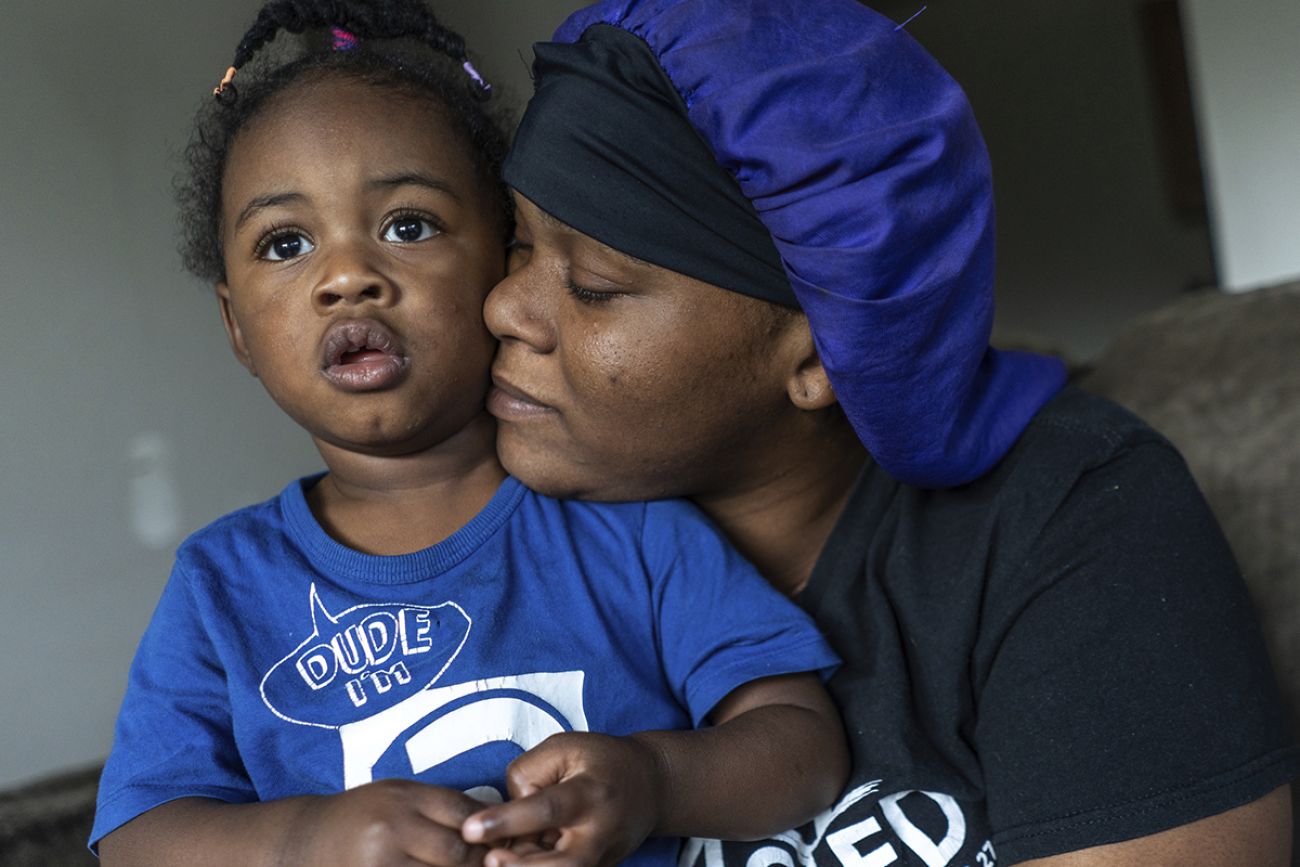
‘I’m not lazy’
Money wouldn’t bring back Jacavia Moore’s mother, who died in 2019, and it wouldn’t bring peace or happiness, but it would still mean something for the 30-year-old single mom. She wants to be a part of the Magnolia Mother’s Trust. The program would help her buy her children more clothes and wash them.
“It can bring about a lot of things that you can’t just snap a finger and get. If I was to get blessed with that and save up every month, I would be able to have at least $1,500 for a deposit — to move in a home,” she said at a neighborhood block party in late September.
Before Moore came to the Commonwealth Village apartments in 2022, she was homeless for several months, living out of a hotel, a shed, with a friend and her father. She was pregnant without a steady place to sleep at night.
Now, she’s in a three-bedroom apartment with her two young children, ages 2 and 4, one of whom has autism, and her sister.
“We’re just trying to make it,” she said at her home in early October.
Moore — who has been working since she was 15 years old and took a break when she was pregnant with her daughter — doesn’t have reliable transportation to get to a job, although she’s been applying for work.
She had to drop out of high school because she had to work to provide for her family while her mom was sick with heart and kidney failure. That’s when she said her childhood ended. She worked all sorts of jobs since then, in hospitality and fast food chains.
“I’m not lazy,” she said.
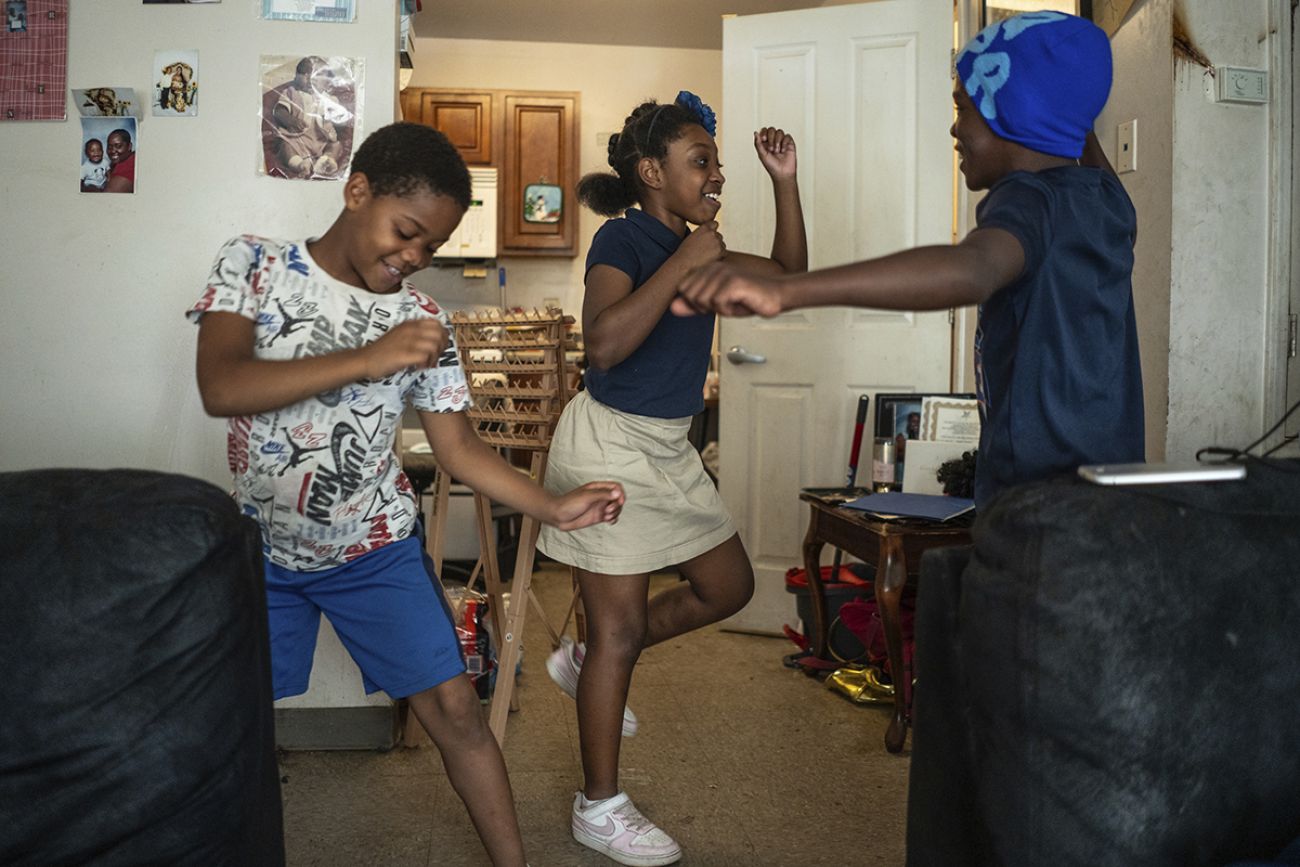
With $20M boost, Flint experiment expands in Michigan
Magnolia Mother’s Trust and Rx Kids are trying to shift the conversation around cash assistance. Stigma associated with welfare and public assistance has been linked to poor health, especially among Black and Hispanic mothers.
“There are no restrictions on how moms spend their money, we are empowering and trusting families to make decisions that best fit their needs,” Dr. Mona Hanna, director of Rx Kids and associate dean of public health at the Michigan State University College of Human Medicine, said earlier this year.
Rx Kids leaders distinguish it from universal basic income, recurring cash payments that are not targeted, and guaranteed income, which provide no-strings-attached cash payments that are often geared toward people with the greatest needs. Instead it’s a child cash transfer program, Hanna said, built on evidence from other countries.
Moms in Flint, where the program first launched in January, spend their “cash prescriptions” — a $1,500 lump sum during pregnancy and then $500 a month for the first year of the infant’s life — on baby supplies, food, rent, utilities and transportation, Hanna said.
Rx Kids received a $20 million state budget allocation, from the federal Temporary Assistance for Needy Families (TANF) program, to expand beyond Flint to Kalamazoo and communities in Wayne County and the eastern Upper Peninsula. The Kalamazoo Rx Kids program, announced earlier this year, is slated to launch in early 2025.
The programs in both Flint and Kalamazoo rely on a combination of public and philanthropic dollars, from funders like the Charles Stewart Mott Foundation, Stryker Johnston Foundation and the Kalamazoo Community Foundation. Rx Kids does not have income requirements and needs philanthropic funds to make it available to moms, in areas it is slated to launch, regardless of their income, program leaders have said.
The Kalamazoo version is designed to help 840 babies, covering the more than 800 expected to be born in 2025 in the city. About 28% of people in Kalamazoo under 18 are living below poverty.
Rx Kids is raising money to launch the program in other parts of the state. So far, organizers have garnered nearly $4 million for a program in the eastern Upper Peninsula (including Alger, Chippewa, Luce, Mackinac and Schoolcraft) and need another $2 million a year. Communities in Wayne County are also expected to be a part of Rx Kids. Dearborn, for instance, needs $8 million a year for the full version of the program.
Funding comes from a combination of philanthropic, federal and corporate dollars, Hanna said. Rx Kids brought in about $100 million in less than two years, she said.

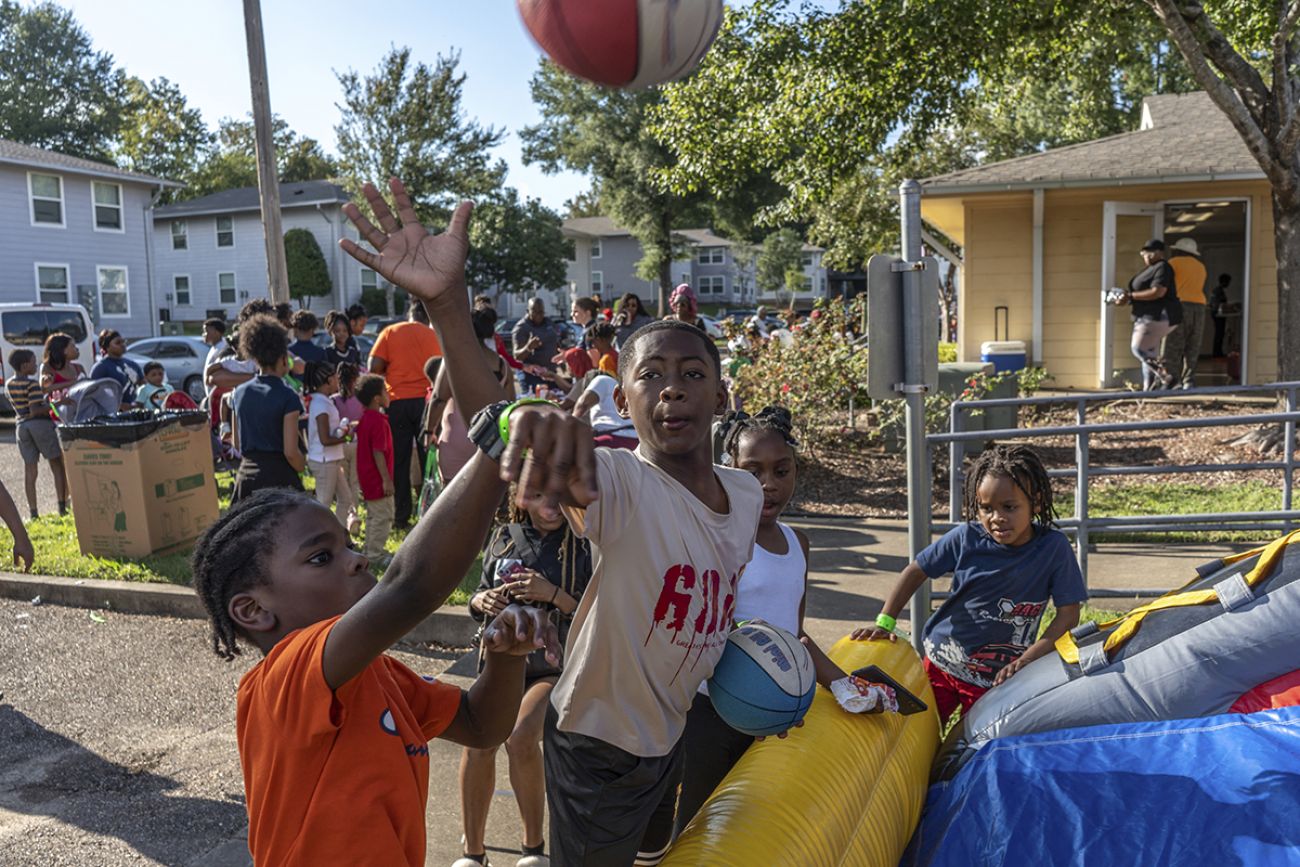
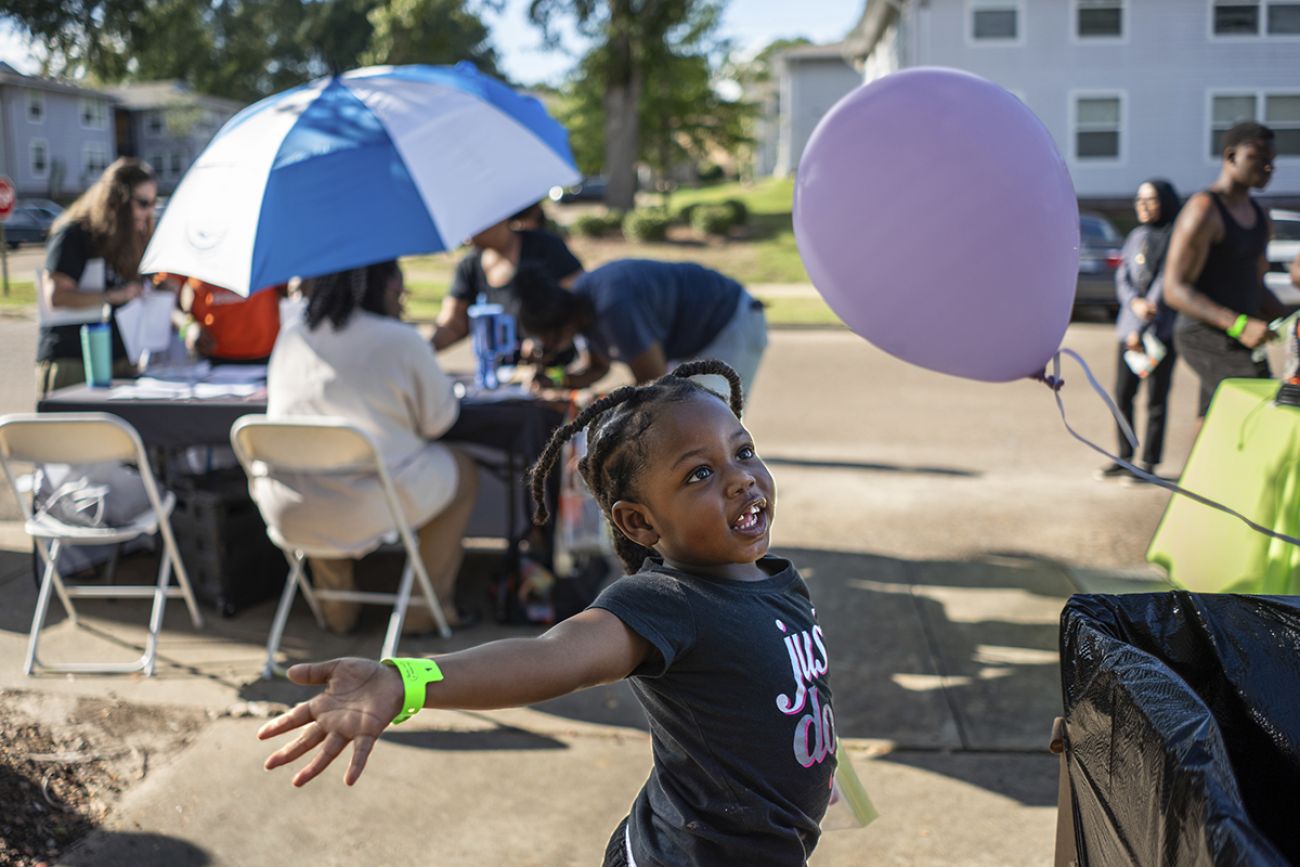
Relief for a Flint family
Angeline Gordon, a Flint mom of three, spent her cash payments on a crib, bills and groceries. The $500 a month is a relief as her family relies on only her husband’s income and weathers inflation and unexpected bills, she said.
Last fall, Gordon’s family moved from Florida to Michigan — where her husband is from — because housing had become unaffordable. Their rent in Bradenton, Florida, jumped from $1,100 to nearly $2,000 in almost three years. They ended up buying a home in Flint with their savings.
Gordon found out she was pregnant around the time they moved. She was going to look for a new job but delayed the search after she learned she was expecting. Gordon’s pregnancy was high risk. She frequently threw up and lost more than 10 pounds in her first trimester. In the second trimester, Gordon was diagnosed with gestational diabetes.
It was also a financially challenging time, going from two incomes, down to one. Her family declared bankruptcy in January and downsized from two cars to one.
During a prenatal visit, a nurse gave Gordon a flier about Rx Kids. At first, she didn’t believe it.
“I was like, well, if this is true, it will help us a lot. Because we start from … scratch for the baby. We don’t have anything for the baby,” Gordon, 37, said.
She received $1,500 in February. After her baby’s birth in May, Gordon began receiving the $500 monthly cash allowance.
“You can really notice a difference,” she said. “Without the $500 extra that we get a month, we might go really behind on even utility bills. With one income coming in the house, still, it’s really hard.”
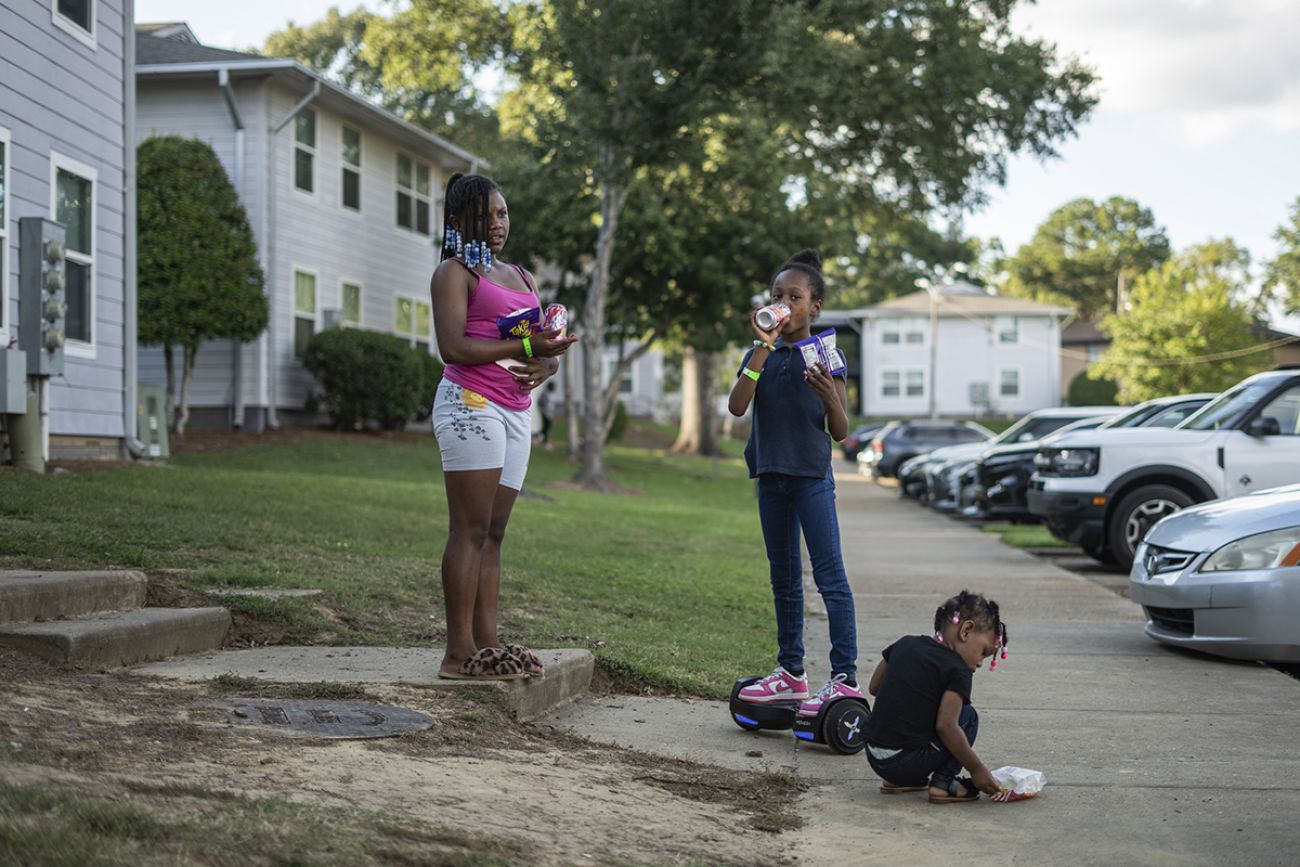
Is the Flint program helping families across the city?
In Flint, Rx Kids has distributed about $5 million to nearly 1,300 families, as of Dec. 16.
Early findings from a survey of more than 112 program participants found that 70% earned less than $10,000 annually and 72% reported that the cash in hand helped improve their own health and the health of their babies. Eighty percent of participants said the money helped them become confident parents.
Another survey of Flint and non-Flint moms before and after Rx Kids began looked at maternal wellbeing and financial security for families. More than 1,000 mothers who gave birth at Hurley Medical Center between July 2023 through June 2024 completed the survey. It found that Rx Kids-eligible Flint families from this year were more likely to report having enough of the food they wanted compared to Flint families in 2023.
None of the low-income participants in Rx Kids reported being evicted since childbirth, compared to other groups, according to the survey.
These preliminary findings matter because 59% of people under 18 live below poverty in Flint, according to 2023 American Community Survey data. In Michigan, it’s 18%.
Sixty-six percent of Flint households in 2022 fell below the United Way’s ALICE threshold, which includes people living in poverty and families earning more than the federal poverty level, but who still don’t make enough to afford the basics where they reside.
Expenses only grow for families when a child comes into the picture.
“The cost of having a baby adds up, and income plunges right before babies are born. Moms often have to come out of the workforce and poverty is at its highest spot in the life course at childbirth,” Hanna said.
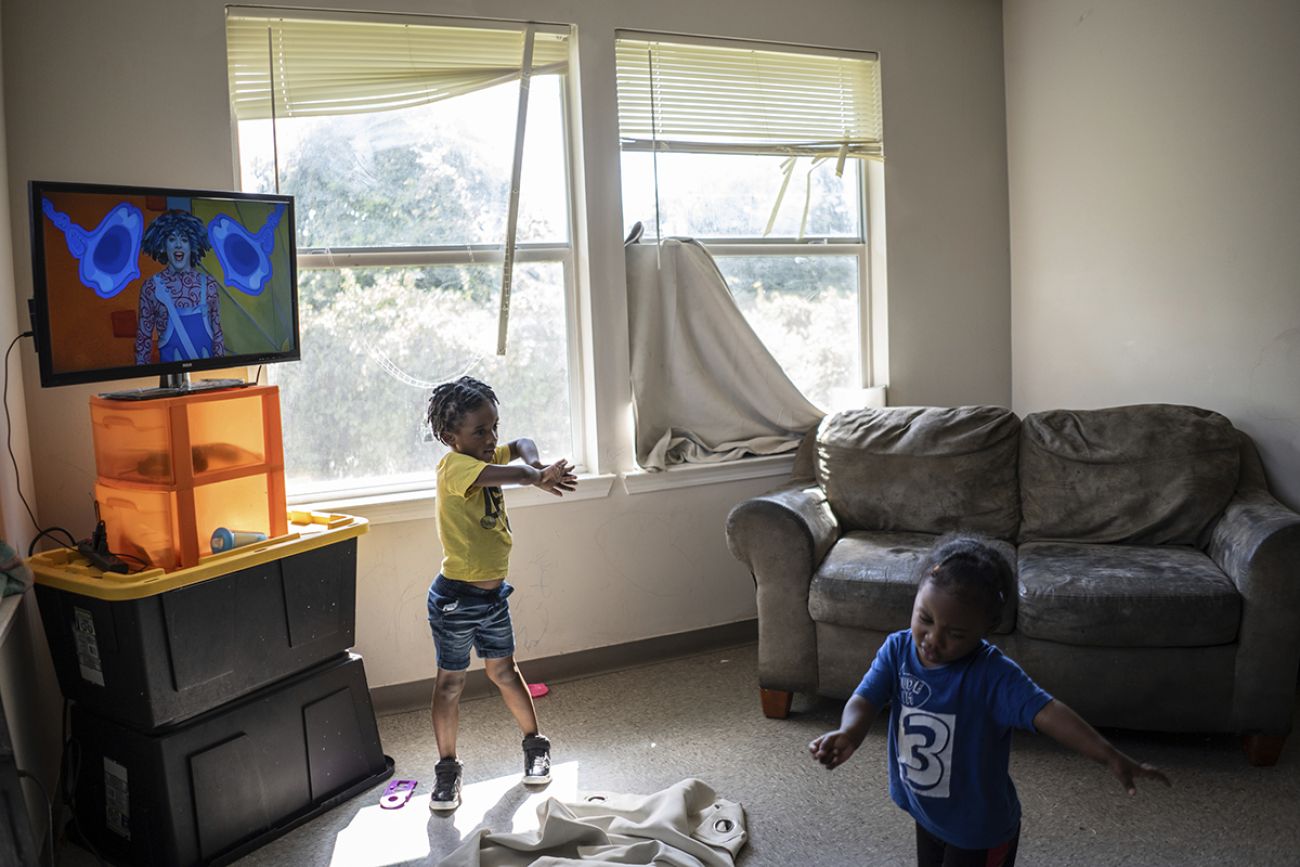
‘A step up’
Michelle Howard is among the most recent participants in the Magnolia Mother’s Trust program, using the extra cash to buy a car, beds for her children and furniture for her apartment at Commonwealth Village.
Howard’s costs essentially outstripped the monthly income she brought in as she juggled tutoring and afterschool programs for her sons, rent payments, groceries, utilities and car insurance.
The extra money helped her spend more time with her kids — talking to them and preparing healthy meals instead of eating on the go — because she was able to quit one of her jobs.
She was able to save money for her sons’ college education and for a home down the line — something she wouldn’t have been able to do otherwise.
“It’s not a crutch,” Howard, 36, said. “I think it’s a step up.”
Homeownership is a goal she shares with Washington, the former Magnolia Mother’s Trust mom. As Washington builds up her credit, she wants to eventually buy a house and have enough space for a dog for her children.
“I always wanted to sit down on my back porch and watch my kids play in the backyard,” she said in her apartment in early October. “I’m gonna get that. That’s what I’m working towards doing. That’s my happy ending.”
This story was produced through the New York & Michigan Solutions Journalism Collaborative, a partnership of news organizations and community groups dedicated to rigorous and compelling reporting about successful responses to social problems. The group is supported by the Solutions Journalism Network. The collaborative’s Health Equity Solutions Project focuses on potential solutions to challenges in health care.
This story was also produced as part of a series for the USC Annenberg Center for Health Journalism’s 2024 Data Fellowship.
Contact Nushrat Rahman: nrahman@freepress.com. Follow her on X: @NushratR.
See what new members are saying about why they donated to Bridge Michigan:
- “In order for this information to be accurate and unbiased it must be underwritten by its readers, not by special interests.” - Larry S.
- “Not many other media sources report on the topics Bridge does.” - Susan B.
- “Your journalism is outstanding and rare these days.” - Mark S.
If you want to ensure the future of nonpartisan, nonprofit Michigan journalism, please become a member today. You, too, will be asked why you donated and maybe we'll feature your quote next time!




